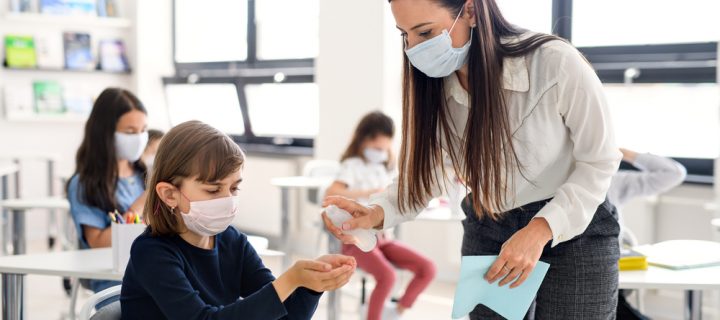The percentage is the same as for the general workforce. And it puts millions at risk of severe coronavirus complications.
We are only halfway through summer in some areas of North America, but many parts are already deciding what to do with next year’s school year. Some districts in California have decided to stick with online schooling exclusively. In Atlanta, the school year has been pushed back from August 10 to August 24, with the first nine weeks being held online. Houston starts school on September 8, and reports show it will all be done online for six weeks.
As for Canada, many of the most-populated spaces have yet to decide what will happen. Potential plans are being made, and will be finalized in the last weeks of August.
And then, there are places like the state of Florida. The coronavirus is surging in Florida, as it has already in many parts of the world. But unlike other places, there is not a massive shutdown happening there. At least, not at the time of this writing. And schools have been ordered to open on the first day of the school year.
Related: The Benefits and Drawbacks to Spraying Sidewalks With Disinfectants
In retaliation against this emergency order to open, which was issued by Florida Education Commissioner Richard Corcoran in mid-July, Florida’s teachers have now filed a lawsuit against the state. The Florida Education Association, as well as some parents, are arguing the decision goes against the recommendations issued by the Centers for Disease Control and Prevention (CDC) with regards to how schools should re-open safely during the pandemic.
Of course, both sides are at odds. The education minister says the lawsuit is “frivolous” and “reckless”. He says that the teachers haven’t read or understood the emergency order. The Florida teachers union, in turn, says that proper planning, resources, and safety precautions are not currently in place or ready to be implemented. This will exacerbate the spread of the virus, they say. In the long run, schools will remain closed for longer.
Related: Yes, Young People With Coronavirus Are Having Strokes
So, what to do? Amidst all of this, here is something to consider. Well, two things. An analysis done by the Kaiser Family Foundation revealed that about 24% of teachers suffer from underlying health conditions. These are things like diabetes, obesity, heart disease, and being over the age of 65. All of these things make this group more vulnerable to getting a severe case of COVID-19.
The Foundation further states on its website that about 3.3 million seniors in the US currently live with school-aged children in their home. So, we are now looking at many millions of people who face an increased risk of contracting a severe case of COVID-19, and potentially dying from it, should schools across the US open en masse for in person learning this summer and fall.
Some feel that schools are safer than places like bars when it comes to the coronavirus,. Kids don’t really spread the illness anyways, do they? Unfortunately, you may want to think again. A study done on 65,000 people in South Korea, a country that had its own substantial coronavirus outbreak this spring, found that older children- read: anyone over 10 but under 19-spread the virus just as much as adults do.
Yet kids need to socialize and parents need to work. It all presents a very big puzzle.
photo credits: Halfpoint/Shutterstock.com












